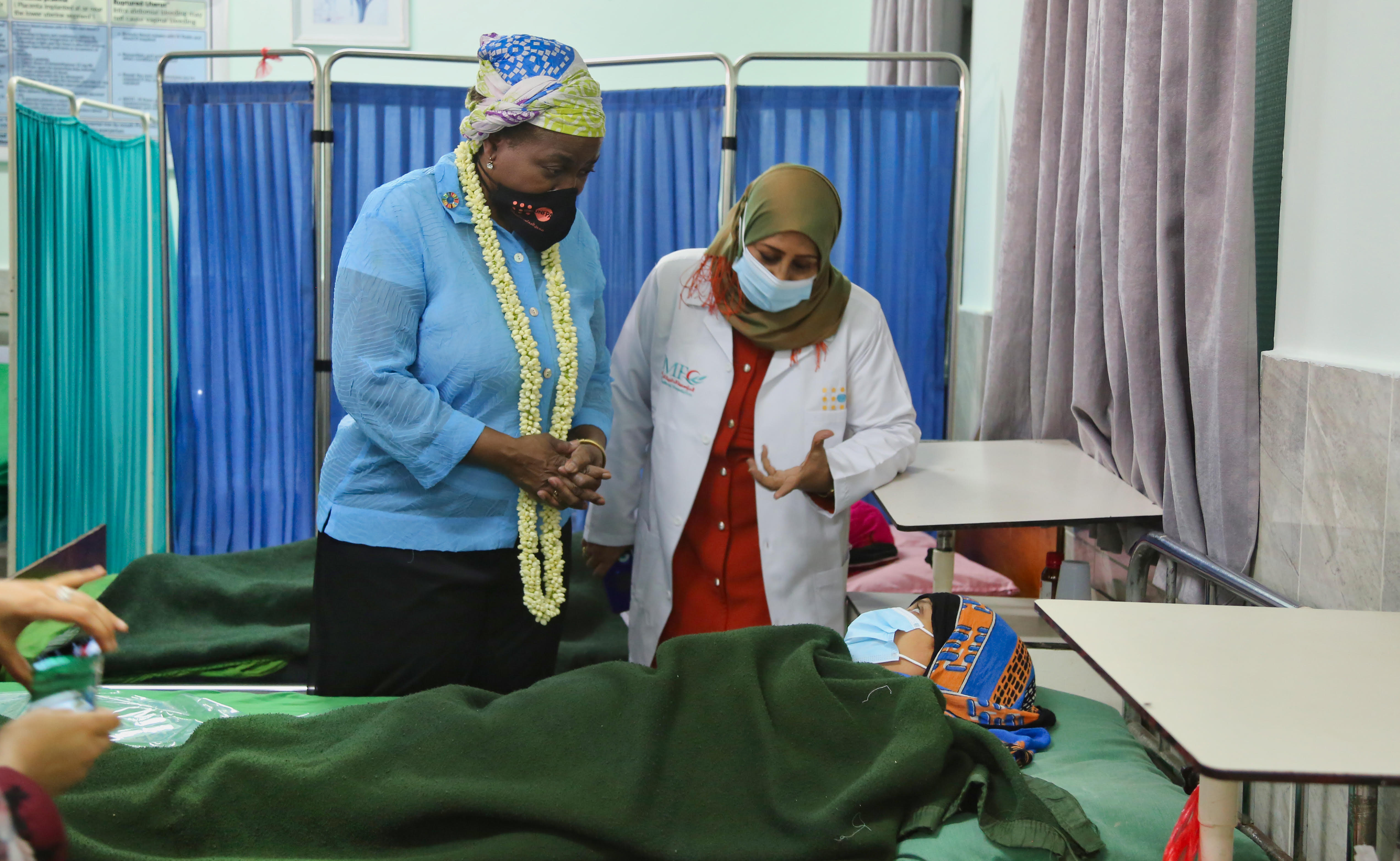Aden/Sana’a - The Executive Director of UNFPA, the United Nations sexual and reproductive health agency, called for peace in Yemen and urgent funding for women’s health and protection as she concluded a three-day visit to the country, where starvation and famine threaten millions of people’s lives, worsened by the COVID-19 pandemic.
“Yemeni women and adolescent girls are bearing the brunt of six long years of grinding conflict, made unimaginably worse by Covid-19 and now the threat of famine,” said Dr. Natalia Kanem. “The situation is catastrophic.”
More than half of the 20 million people in need of humanitarian assistance in Yemen are women and girls.
“I am deeply concerned about the safety and reproductive health of women and girls in Yemen," Kanem said. "More than one million pregnant women are at risk of acute malnutrition; this number could double if we do not take urgent action.”
In Aden, Kanem visited a hospital and saw the toll that this conflict is taking. Every two hours, a woman dies from complications of pregnancy in the country. For pregnant women, severe malnutrition makes the process of giving birth even more life threatening. Many women cannot get to hospitals for the care they need due to lack of transport and long distances. Only 20 percent of functional health facilities provide maternal and child health services.
“I've been in many maternity wards, and they are usually a place of joy. But in Yemen, I witnessed the devastation of malnutrition and hunger, with newborn babies on feeding tubes and mothers weakened by fear and exhaustion,” said the UNFPA Chief. “It is heartbreaking to see fellow members of the human family in such dire conditions. I call on world leaders to respond urgently, work in solidarity, and stop this needless suffering and save lives,” she said.
UNFPA is a long-standing partner in Yemen, providing more than half of all health facilities with the essential life-saving medicines to support women’s health, including maternal health.
During conflict, risks of gender-based violence increase along with harmful practices. In Aden, Kanem also visited a women’s shelter, one of eight shelters and 51 girls and women’s safe spaces supported by UNFPA in the country.
“I spoke to young girls and pregnant women who had to flee for their lives and seek protection in UNFPA sites, which are among the very few safe spaces for women and girls,” she said.
Six years of conflict have taken a heavy toll on the mental health of Yemenis, especially women and girls who are disproportionately affected by the crisis. An estimated 1 in 5 people suffer from mental health disorders, according to a 2017 study. However, mental healthcare remains scarce.
In Sana’a, the UNFPA Executive Director visited a specialized psychological care centre supported by UNFPA, where women and families receive mental health care and treatment. The three-building complex has grown over the past few years to provide increased services, including a 24 hour helpline.
“I was struck by the true resilience of women who have experienced such horrific trauma, and yet they still look for a better tomorrow,” Kanem said “The women and girls of Yemen deserve peace. For too long, they have been caught up in a conflict that is not of their making. Their very survival depends upon increased international support and funding. The world must act now to save the lives of innocent civilians.”
For enquiries on Yemen and UNFPA’s Humanitarian Programme, please contact: Ann Erb-Leoncavallo: +1 917 860 7256: leoncavallo@unfpa.org.
For media and interview enquiries, please contact: Eddie Wright: +1 917 8312074: ewright@unfpa.org.



